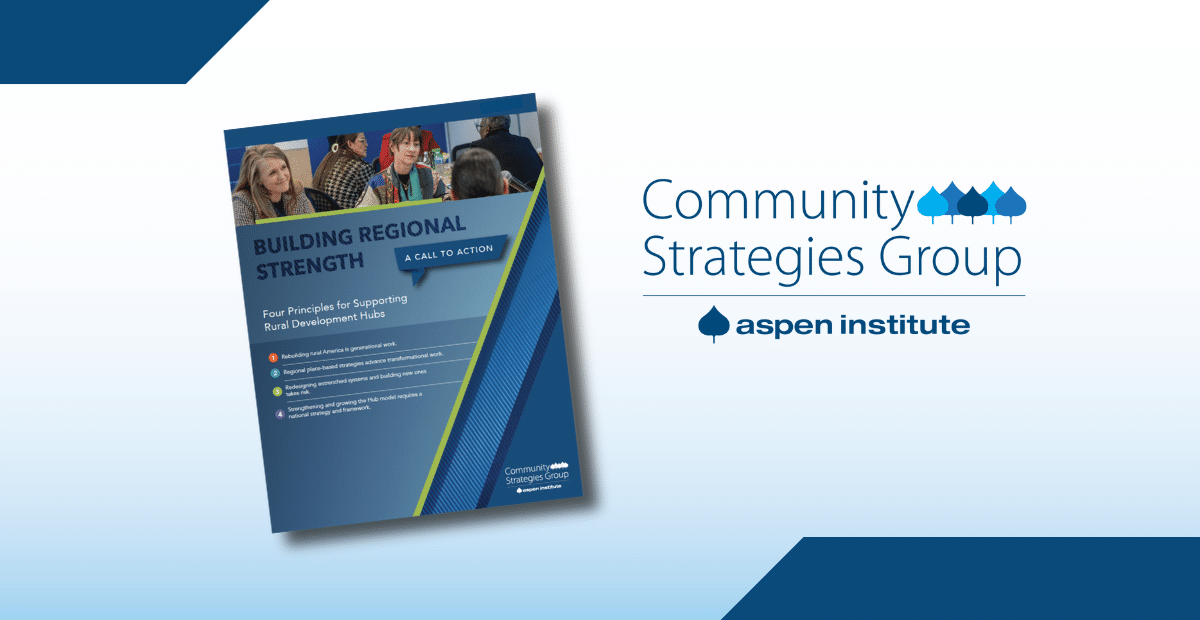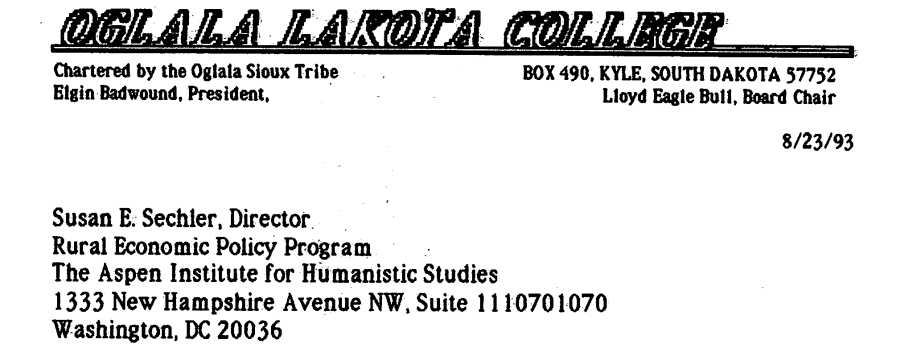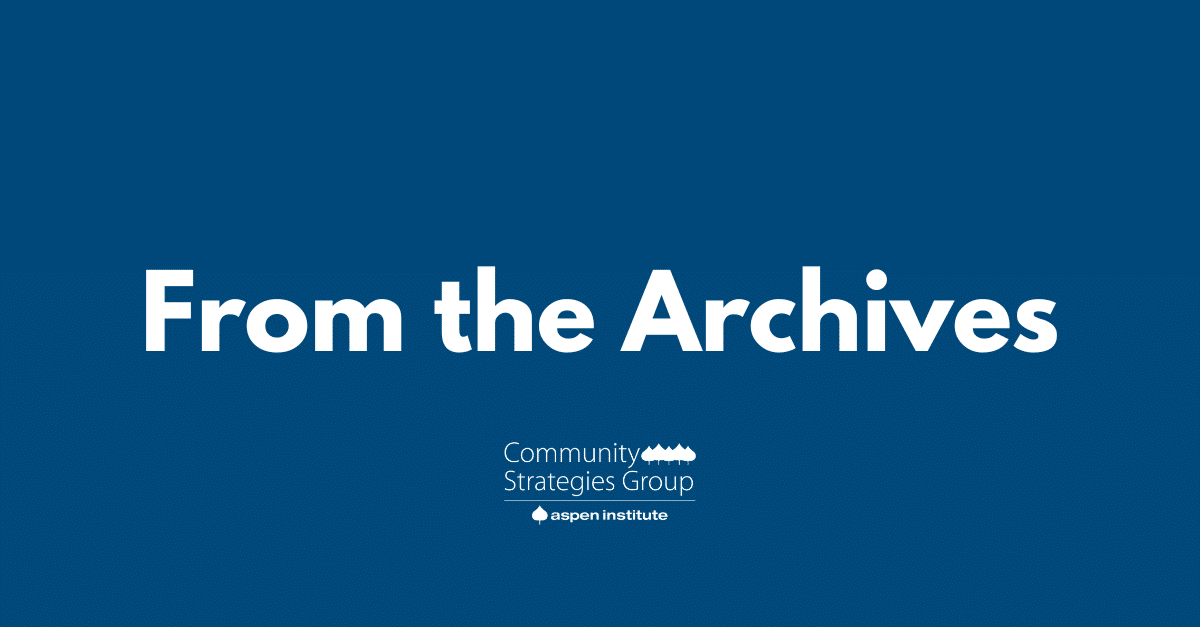Building Regional Strength: A Call to Action
Insights and recommendations to build healthy, thriving rural & Indigenous regions.
Rural Resources, Insights, and Collaborations by Aspen CSG and Partners
Insights and recommendations to build healthy, thriving rural & Indigenous regions.


Ethnographic study of poverty on Oglala Lakota reservation.

This document is an index for “GLOBALIZATION AND THE NORTH AMERICAN FREE TRADE AGREEMENT: Impact on Rural Communities,” a conference...

This Aspen Institute report, "FROM THE BOTTOM UP: Toward a Strategy for Income and Employment Generation Among the Disadvantaged," by Fred O'Regan and Maureen Conway (March 1993), details an interim study on local programs aimed at poverty alleviation and employment generation in the United States.

This paper, titled "TRAINING REFORM IN THE UNITED STATES: WHAT'S HAPPENING, WHAT'S NOT, WHAT SHOULD," by Joel Rogers (June 1993), provides an introduction to the topic of training reform in the U.S. It addresses the reasons for the focus on training, the necessary reforms for U.S. training institutions, and the barriers to achieving those reforms.

This paper examines the impact of globalization and the North American Free Trade Agreement (NAFTA) on employment and training policy in the United States, with a specific focus on rural communities. The author, Cynthia Mugerauer, argues that while there are existing employment and training programs, they often fail to address the unique needs of rural workers and lack a unified rural strategy.

This document, “The Transition to Empowered Problem-solving Teams at Motorola” by James D. Burge, describes Motorola’s shift towards empowering its...

This is the final report for the "Rural Economic and Community Development State Policy Academy" project, submitted by the Council of Governors' Policy Advisors (CGPA) on November 4, 1993. The project, jointly funded by the W.K. Kellogg Foundation, the Ford Foundation, and the Aspen Institute, aimed to translate rural research into actionable policy for state governments, build state capacity for comprehensive rural development strategies, and support states in setting policy goals and implementing programs.

This report, presents the findings of a resident recreation and parks survey conducted in February 1993 for Black Hawk, Central City, and Gilpin County, Colorado. The study was a cooperative effort between the Regional Planning Commission, the University of Colorado at Boulder, and The Aspen Institute.

This file is a survey titled "Residents' perceptions and attitudes about limited stakes casino gambling and its impact on community life." The survey was administered to heads of households in Deadwood, South Dakota, and Black Hawk, Central City, Cripple Creek, and Grand Lake, Colorado. It was supported by the State Policy Program of The Aspen Institute and funded by The Ford Foundation and the W.K. Kellogg Foundation.

This report, titled "Communities in the Lead: The Northwest Rural Development Sourcebook" by Harold L. Fossum, published in January 1993, focuses on empowering community-based revitalization efforts in rural areas of the Northwest. The sourcebook was supported by the Ford Foundation and the Aspen Institute's State Rural Policy Program.

This report, titled "Value Added and Subtracted: The Processed Potato Industry in the Mid-Columbia Basin," examines the socioeconomic and environmental impacts of the frozen potato products industry in the Mid-Columbia Basin of Washington and Oregon.

Report presents a national strategy to enhance the skills of workers in America's industrial foundation of small and midsized manufacturing firms.